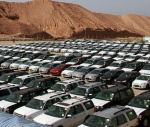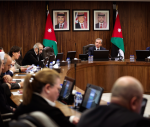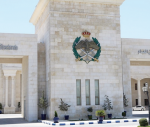You are here
Peace through science
Nov 09,2017 - Last updated at Nov 09,2017
His Majesty King Abdullah inaugurated on Tuesday at the Dead Sea the World Science Forum 2017, which this year had “Science for peace” as its theme, a topic strongly supported by this distinguished meeting that normally seeks to highlight the role of science in building and fostering a culture of peace at all levels of society, and the potential of science to create mechanisms that promise peaceful opportunity.
The forum, first held in Hungary in 2003, was attended this year by visiting Hungary President János Ader, who joined some 3,000 scientists, policymakers, Nobel laureates, academics and investors from over 120 countries at this meeting held for the first time in the area.
The King honoured several prominent Jordanian scientists who made remarkable achievements in various fields and said, on the occasion, that knowledge can help realise stability and development for “our world and the future of our generations”.
With so much turmoil and fighting laying the Middle East to waste, it is no wonder that this year’s forum wishes to highlight the role of science in building and fostering peace.
But equally important to achieving peace is food, water and security, as highlighted by the Hungarian president who, mentioning the region’s rich historical lessons, pointed out the reasons this year’s forum focuses on these issues: “If we look at only its past 100 years, we can see that competition for natural resources — like arable land, water and energy — has almost always contributed to conflicts within and between countries. It is no accident that this year’s forum focuses on the issues of food security, water and energy. All three of these areas are fundamental to security.”
They certainly are, particularly when knowing that, as the president said, 2 billion people have no access to safe drinking water, 4 billion have no access to adequate sanitation, in 36 countries, per capita water supplies have fallen to a critical level and around 80 per cent of waste water is dumped, untreated, into the biosphere, all problems with great potential to create instability or worse.
As such, HRH Princess Sumaya, chairperson of this year’s forum and president of the Royal Scientific Society, expressed hope that the “stark and shared” challenges and “critical needs of our world” can be addressed, “to create a future that is worthy of our human spirit”.
As she also aptly put it, “knowledge is the key to our future, and science and technology must be empowered to acknowledge those truths that are challenged today”.
Indeed, only through knowledge and daring pioneering work can mankind hope to better its lot, harness nature’s bounty and caprices, overcome petty instincts and avoid savage conduct; only thorough scientific knowledge can it understand the world around, live harmoniously and succeed in combating the scourges of our days: radicalism and terrorism.
Only through it can it hope to survive as a species and save this planet so aggressively exploited.
Theoretical physicist, best-selling author and renowned futurist Michio Kaku said it better: “The future belongs to the educated, dreamers and the curious young people… .”
The UN Committee on Economic, Social and Cultural Rights is now considering articulating a “general comment” on the right to science as a means to upgrade human thinking and intellectual integrity, an issue on which the forum organisers might wish to collaborate with the UN.
Knowledge means power, progress and emancipation. Spreading it is the duty of all those who possess it. The forum is essential to that endeavour.













